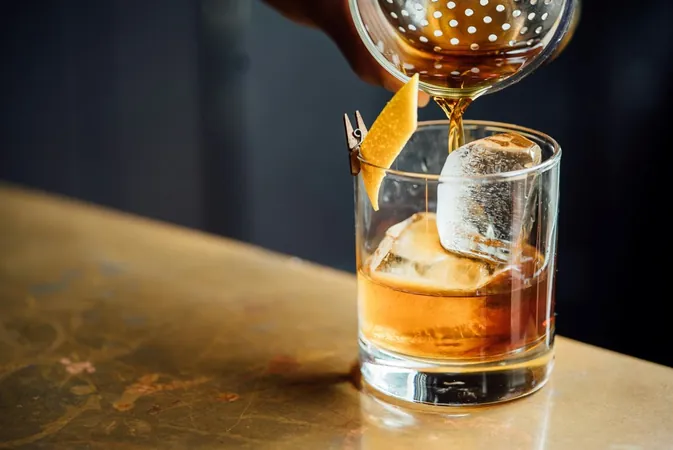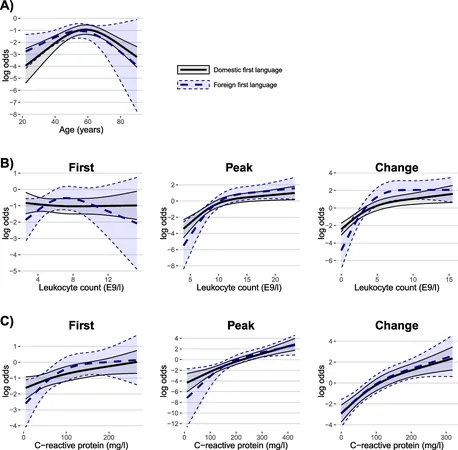
Surging Estrogen Levels Linked to Increased Binge Drinking in Female Mice: Groundbreaking Study Reveals Startling Connection
2024-12-30
Author: Sarah
Introduction
Research has unveiled a significant link between high estrogen levels and increased binge drinking behavior in females, shedding light on potential sex-specific differences in alcohol consumption.
According to a compelling study published in the journal *Nature Communications*, female mice demonstrated a notable increase in alcohol intake during periods of elevated estrogen, prompting concerns about the implications for women.
Study Overview
The study, spearheaded by scientists from Weill Cornell Medicine in the US, is the first of its kind to establish the correlation between heightened estrogen levels and binge drinking in females.
Binge drinking is notorious for exacerbating the harmful effects of alcohol, and the study emphasizes that women may be particularly susceptible to these negative health outcomes compared to their male counterparts.
Research Findings
Researchers found that neurons in a brain region known as the bed nucleus of the stria terminalis (BNST) exhibited higher excitability in female mice than in males.
This area of the brain, which functions as a key regulator of stress-related activities, including mood and anxiety, was found to be intimately connected to the observed binge drinking behaviors.
"Estrogen has profound effects on many behaviors, especially in females," said senior author Kristen Pleil, an associate professor of pharmacology at Weill Cornell Medicine.
"It stands to reason that this hormone would also influence drinking patterns."
Methodology
During the study, the team monitored estrogen hormone levels throughout the estrous cycle of female mice, paralleling the human menstrual cycle.
They offered the mice alcohol and discovered a striking pattern: on days when estrogen levels peaked, the mice consumed significantly more alcohol than on days when estrogen was low.
Results
"Our findings revealed that female mice exhibited increased binge drinking and reduced alcohol avoidance when estrogen levels were high during their estrous cycle compared to when they were low," the researchers noted.
This intensified drinking behavior was closely associated with heightened neural activity in the BNST.
"When a female takes her first sip from the alcohol bottle, those neurons react intensely.
If she's in a high-estrogen state, the response is even more pronounced," Pleil explained.
This surge in neural activity prompted the mice to consume alcohol more aggressively, particularly within the initial 30 minutes of access.
Implications
The implications of this groundbreaking study may extend beyond the lab, suggesting potential new strategies for treating alcohol use disorders in women.
Understanding the biological underpinnings of binge drinking could pave the way for more targeted therapies and interventions, addressing this critical public health issue.
Conclusion
As we continue to uncover the complex interplay between hormones and alcohol consumption, this research serves as a crucial reminder of the need for tailored approaches in addiction treatment, especially concerning gender differences.
As awareness grows, so does the potential for innovative solutions to combat the effects of binge drinking in vulnerable populations.


 Brasil (PT)
Brasil (PT)
 Canada (EN)
Canada (EN)
 Chile (ES)
Chile (ES)
 Česko (CS)
Česko (CS)
 대한민국 (KO)
대한민국 (KO)
 España (ES)
España (ES)
 France (FR)
France (FR)
 Hong Kong (EN)
Hong Kong (EN)
 Italia (IT)
Italia (IT)
 日本 (JA)
日本 (JA)
 Magyarország (HU)
Magyarország (HU)
 Norge (NO)
Norge (NO)
 Polska (PL)
Polska (PL)
 Schweiz (DE)
Schweiz (DE)
 Singapore (EN)
Singapore (EN)
 Sverige (SV)
Sverige (SV)
 Suomi (FI)
Suomi (FI)
 Türkiye (TR)
Türkiye (TR)
 الإمارات العربية المتحدة (AR)
الإمارات العربية المتحدة (AR)